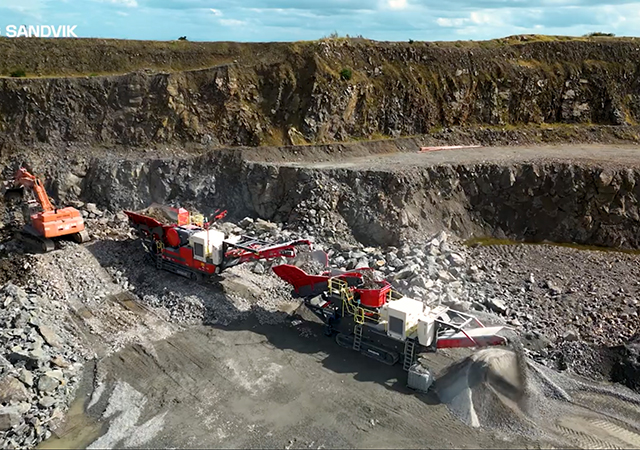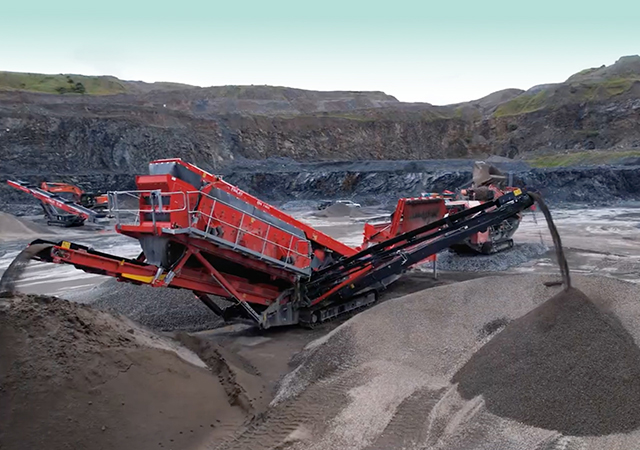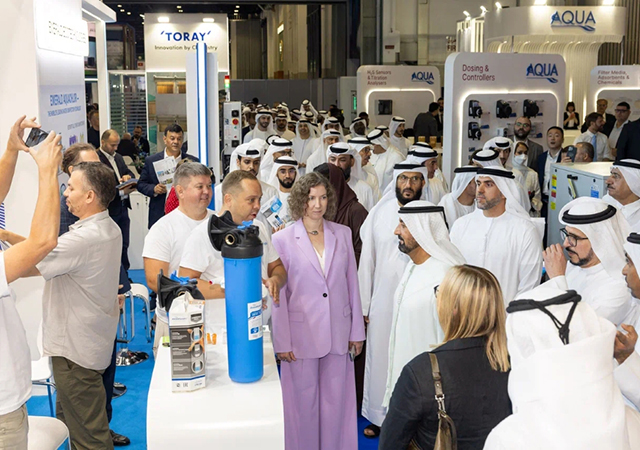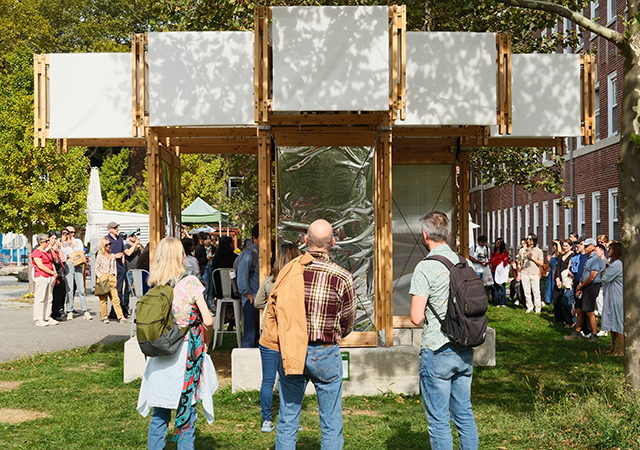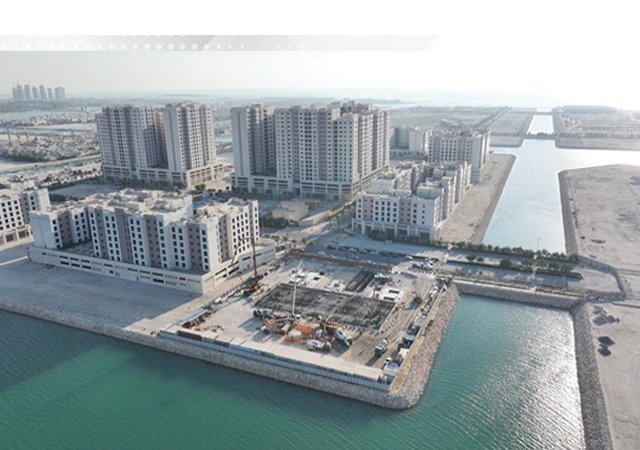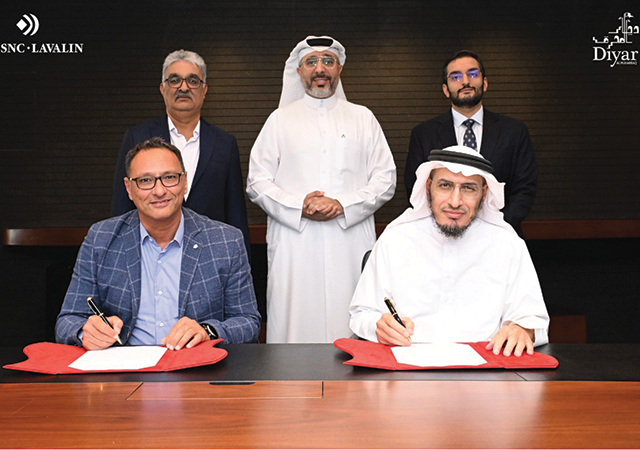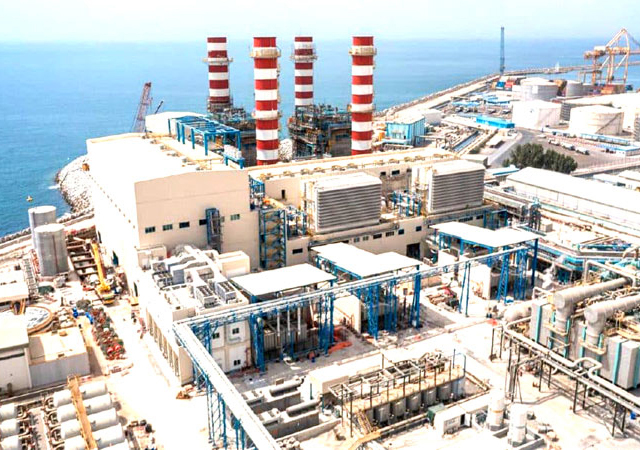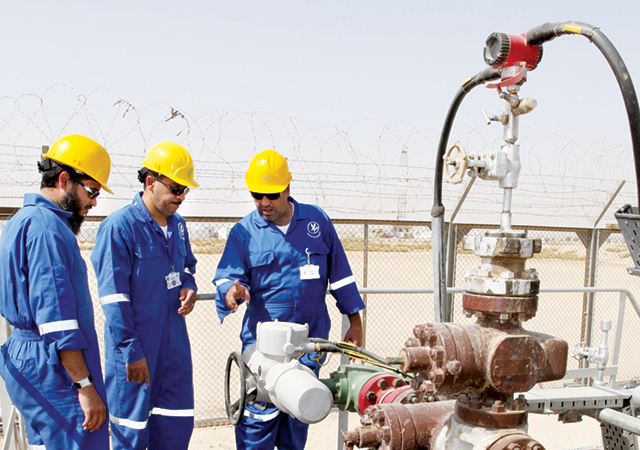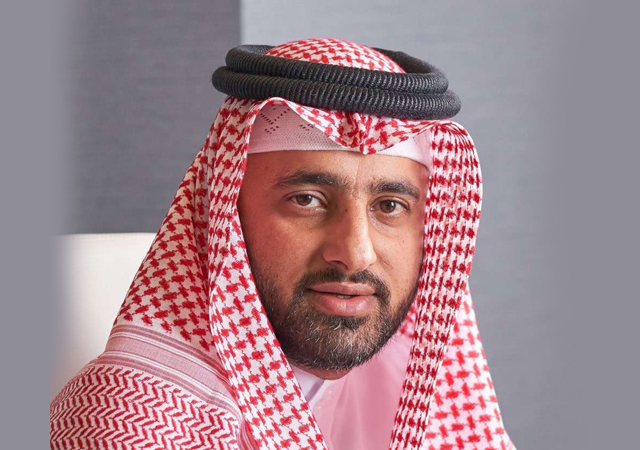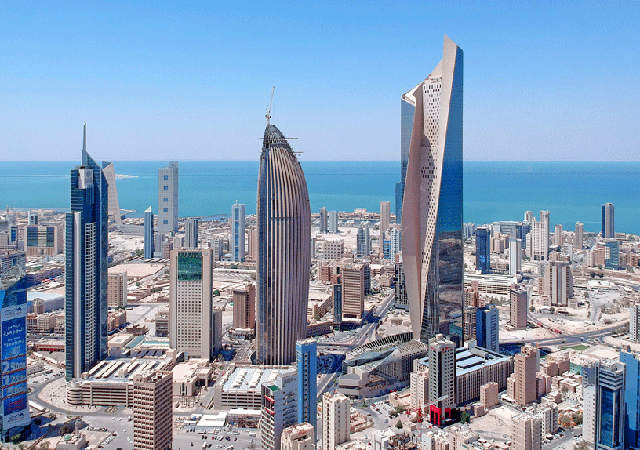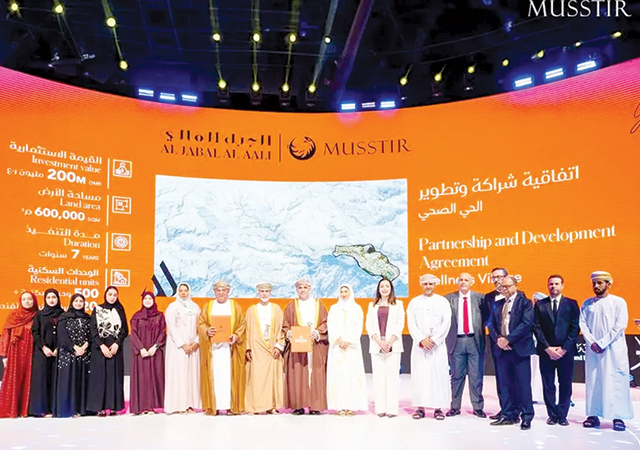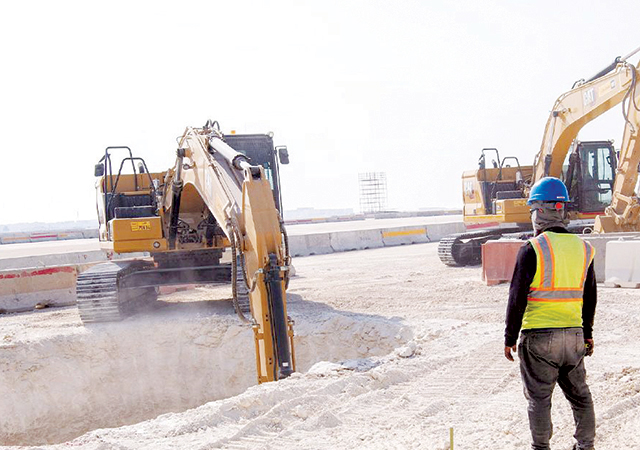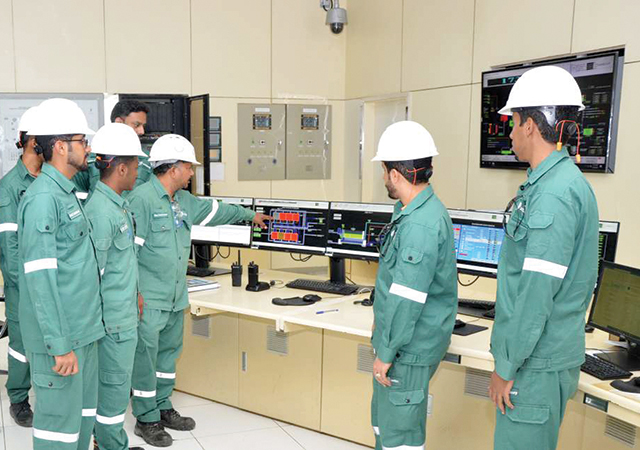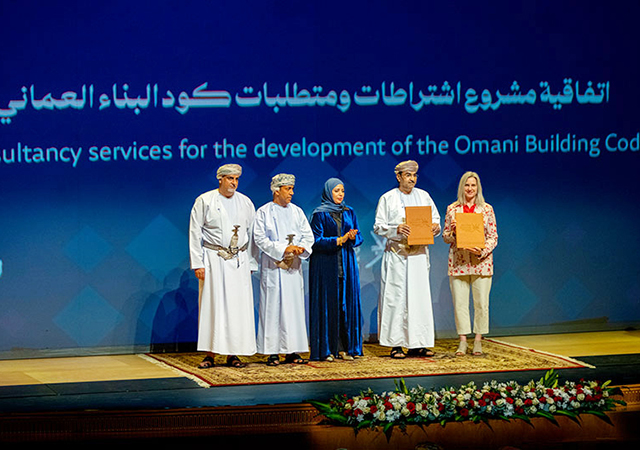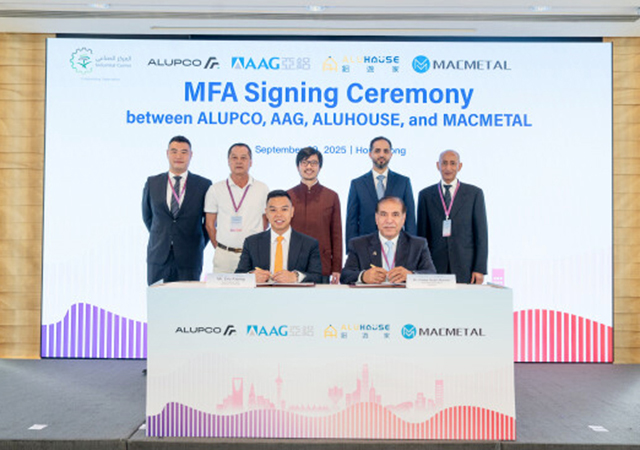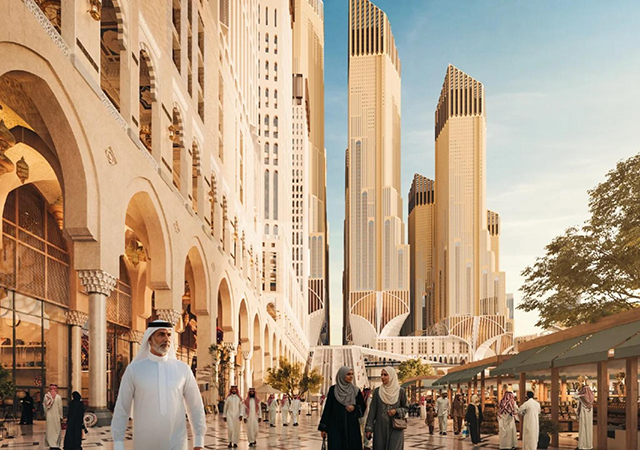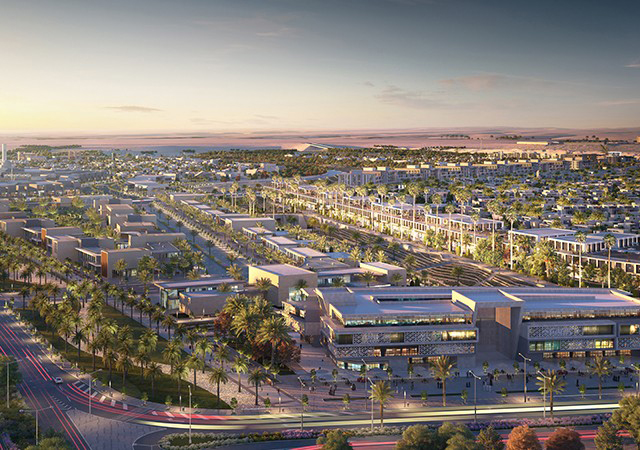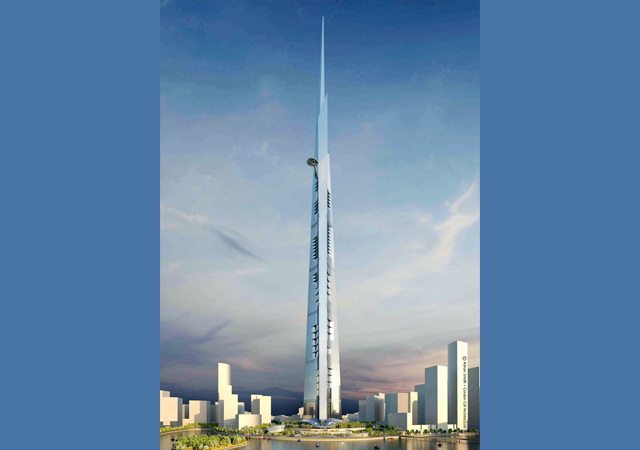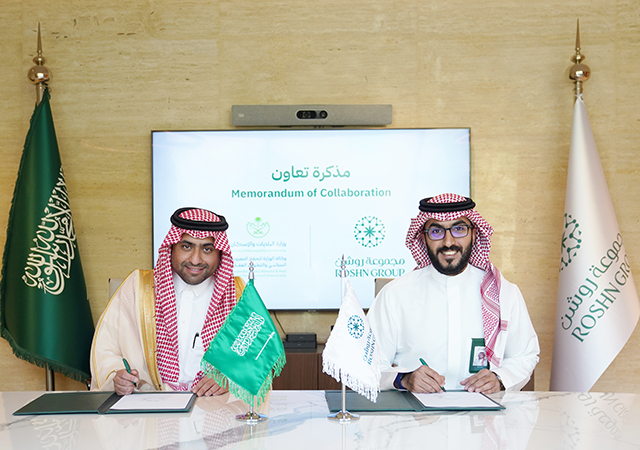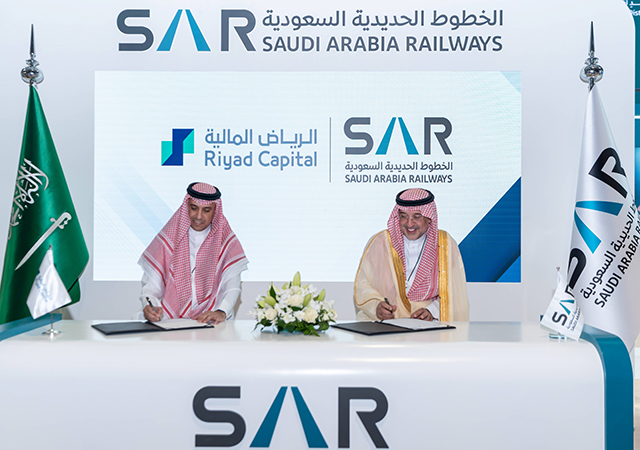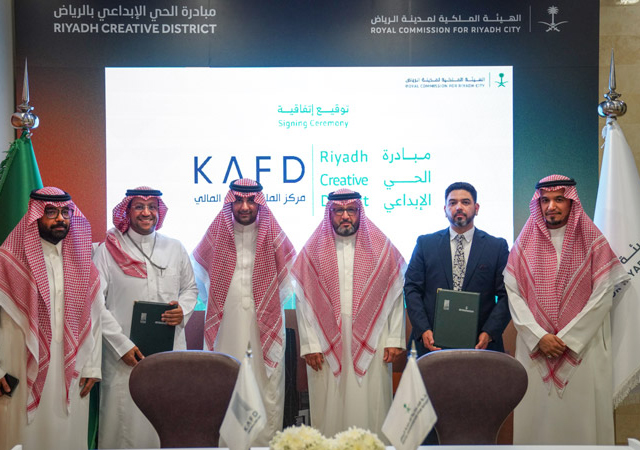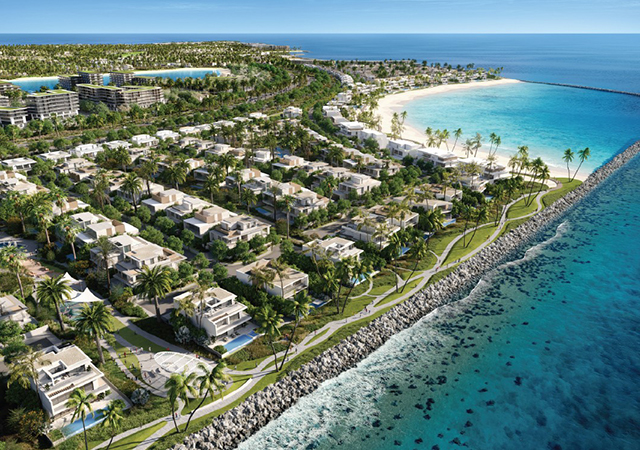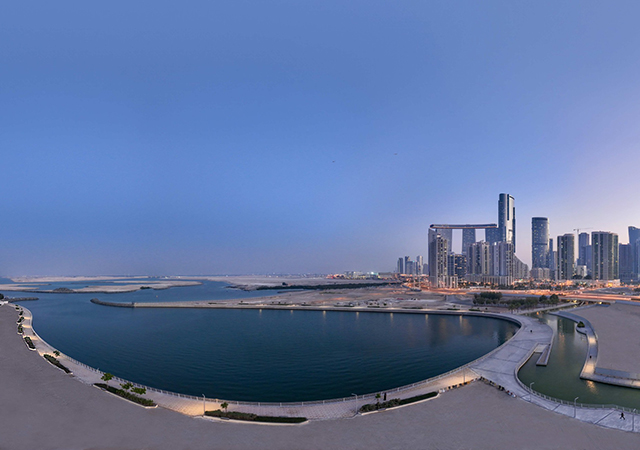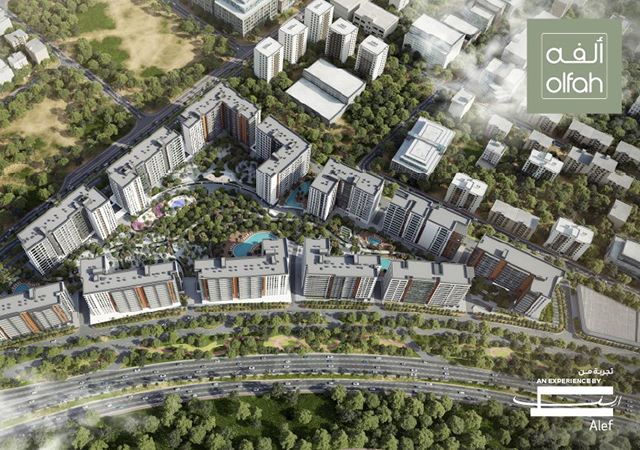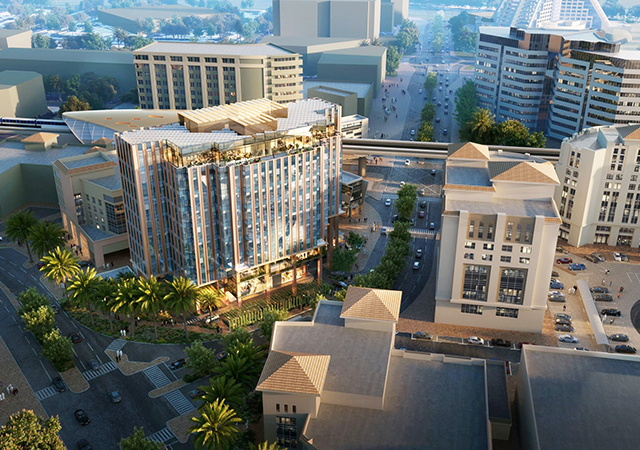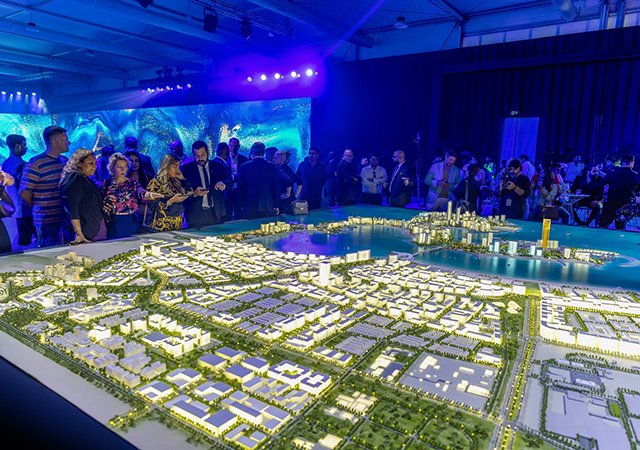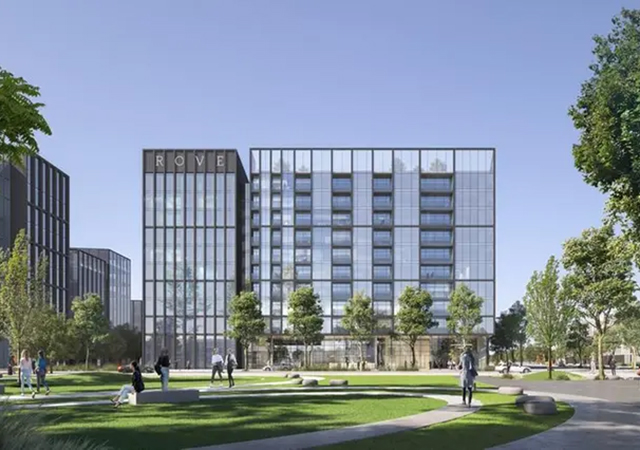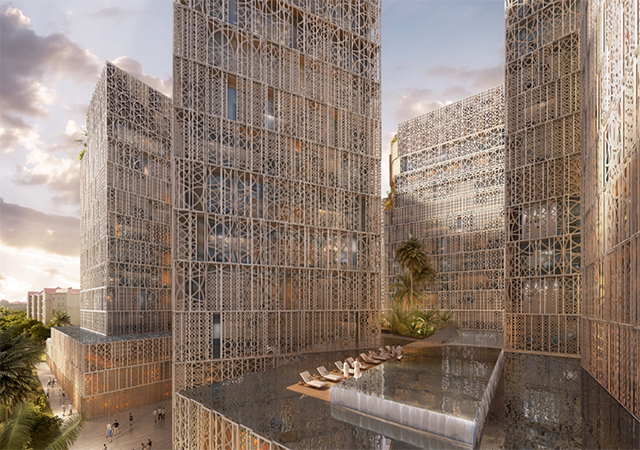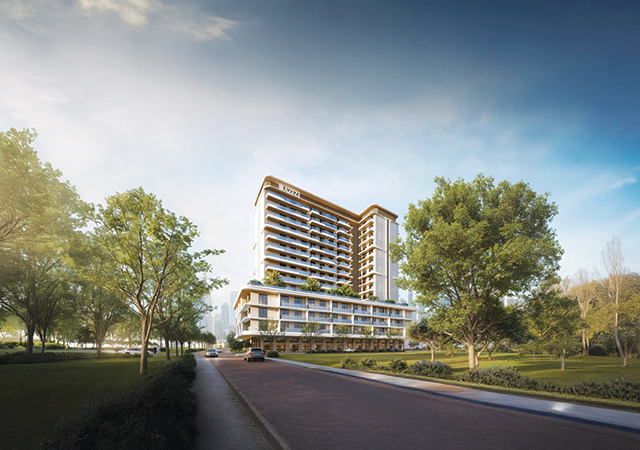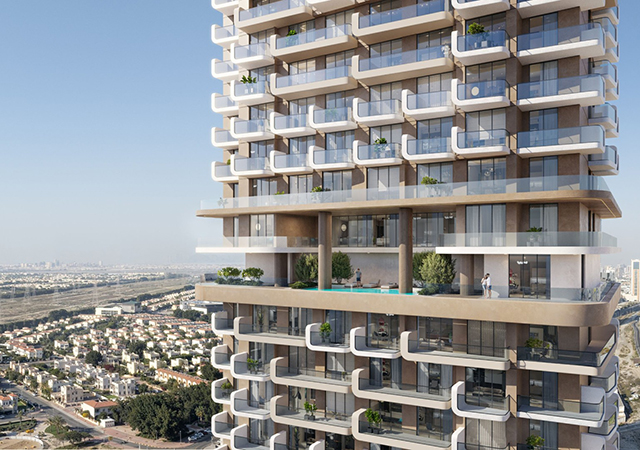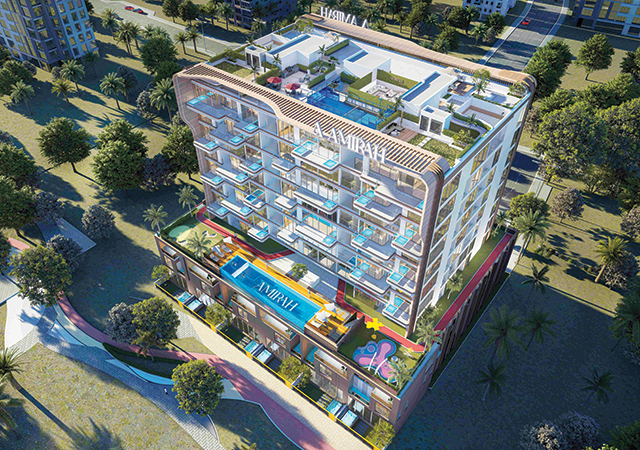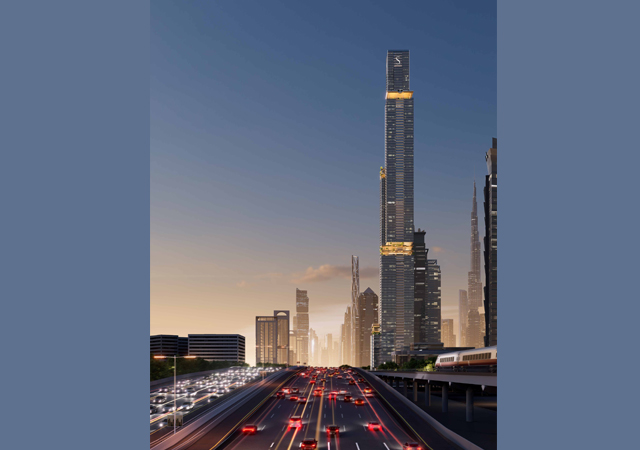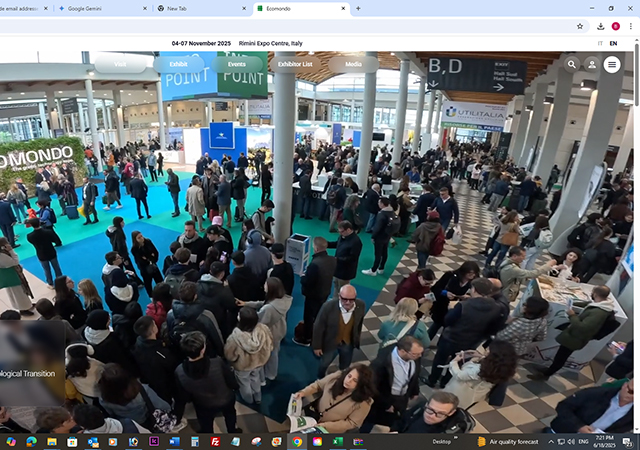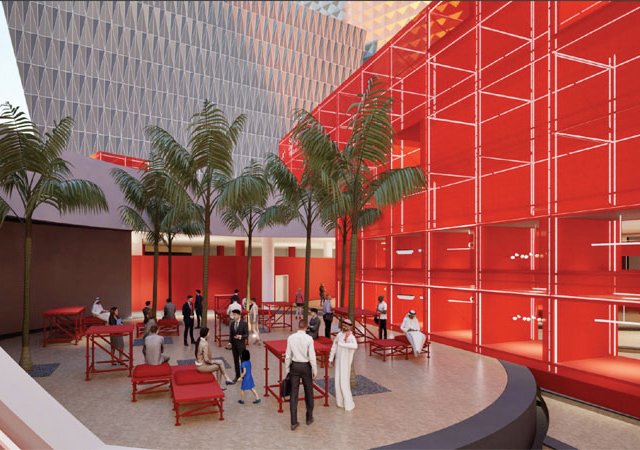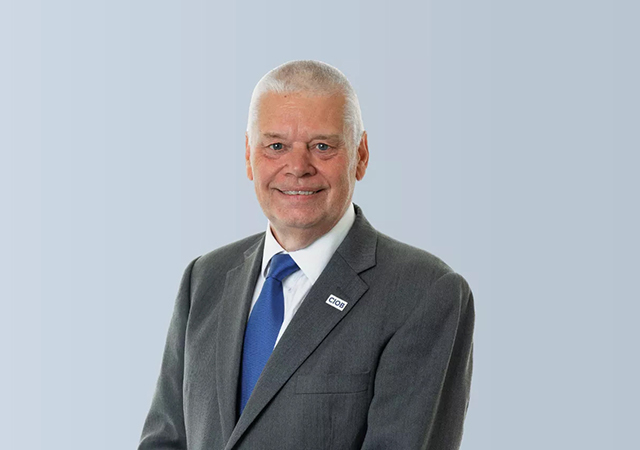
 Paul Gandy
Paul Gandy
The Chartered Institute of Building (CIOB) is targeting accelerated expansion across the Middle East and North Africa (MENA) region, with Saudi Arabia and Egypt identified as priority markets, according to the top official of the international professional authority for construction management and leadership that sets and maintains high standards for building professionals worldwide.
In an exclusive interview with Gulf Construction’s Bina Goveas, President Paul Gandy says his vision, aligned with CIOB’s corporate plan, is to help the sector in MENA thrive through sustained investment, sustainable practice and a strengthened skills base.
“The region is experiencing rapid growth, and with that comes an opportunity to ensure new projects deliver long-term social, economic and environmental value. Encouraging responsible investment is essential if we are to build resilient communities and world-class infrastructure,” he says.
Sustainability, tackling skills shortages and promoting professional standards are at the core of CIOB’s regional strategy, according to Gandy. He cites Saudi Arabia’s massive infrastructure push under Vision 2030, adding that the institute is well positioned to support the transformation by raising standards and addressing workforce competence.
CIOB is a leading global professional body dedicated to the science, ethics, and practice of building and construction. Established in 1834, it promotes high standards of professionalism, education, and innovation across the built environment. It supports construction professionals through membership, qualifications, training, and resources aimed at improving skills and knowledge while advancing sustainable and ethical construction practices worldwide.
 |
|
CIOB supports construction professionals through membership, qualifications, training, and resources aimed at improving skills and knowledge while advancing sustainable and ethical construction practices worldwide.. |
CIOB is working with governments in the region to secure recognition of its qualifications, aiming to create clear career pathways and boost talent attraction. Active hub committees in Riyadh (Saudi Arabia), Dubai and Abu Dhabi (UAE), Doha (Qatar), Manama (Bahrain), Muscat (Oman) and Cairo (Egypt), alongside new member-led events in Jeddah and Al Khobar (Saudi Arabia) and Alexandria (Egypt), are helping expand local engagement.
The CIOB Academy, accessible globally, provides online courses in ethics, sustainability, leadership and digital construction, which Gandy describes as “highly relevant” to MENA’s priorities. The institute is also promoting initiatives such as Sustainability Ambassadors and EDI Ambassadors to champion emerging industry issues.
Recent breakthroughs include university accreditation agreements in the UAE, Oman and Bahrain, with Qatar and Egypt expected in 2026 and Saudi Arabia likely to follow. CIOB has also refreshed its eligibility rules to allow more MENA-based companies to secure chartered status.
Gandy says MENA has seen the highest percentage of membership growth for CIOB globally, driven by the scale and ambition of projects in Saudi Arabia in particular.
“My message to professionals and companies in the MENA region is to make a commitment to professional development and stay open to learning new trends, techniques and best practices,” he adds.
CIOB plans further regional outreach in 2026, with Gandy aiming to visit the Middle East in his capacity as president during the first quarter.
Excerpts of the interview with Paul Gandy, President of CIOB:
Please share your vision as CIOB President for the construction sector, particularly in relation to the MENA region?
As President of CIOB, my vision, in line with CIOB’s corporate plan, is to see the construction sector in the MENA region thrive through sustained investment, sustainable practice, and a stronger skills base.
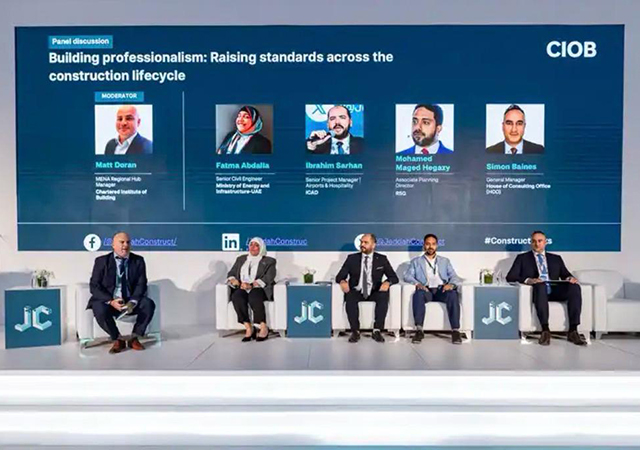 |
|
CIOB participates in regional panel discussions and is also expanding its local presence through member-led events. |
The region is experiencing rapid growth, and with that comes an opportunity to ensure new projects deliver long-term social, economic, and environmental value. Encouraging responsible investment is essential if we are to build resilient communities and world-class infrastructure.
Sustainability must sit at the heart of this progress. The MENA region has the chance to lead in low-carbon construction and innovative building methods, setting an example globally.
At the same time, addressing the skills shortage is critical. CIOB is committed to supporting education and professional development across the region to equip people with the expertise needed to deliver complex, sustainable projects.
What are the key priorities for CIOB globally and how do these align with the needs of the MENA construction industry?
One of CIOB’s global priorities is tackling the skills gap, and this is equally relevant in the MENA region. Across the world, we are seeing an ageing workforce, with many experienced professionals approaching retirement. The importance of having skills and competent workers cannot be understated, particularly in regions witnessing substantial growth in commercial projects.
The solution begins with education and engagement. We need to get into schools early, showing young people the breadth of opportunity construction offers – not just in traditional ‘on-site’ roles, but in areas like sustainability, digital technologies, and project management.
Construction is one of the few careers where you can make a difference in the long term. I often talk about “leaving footprints in the sand”, and what I mean by this is that construction is also an industry which can add tremendous value not only in respect of projects themselves but – when we do the right thing – in the value we can add to communities, business and people’s lives. We need to get that message across not just by what we say but also by what we do.
What are the CIOB priorities in the MENA region over the next three to five years?
Our focus is on strengthening CIOB’s presence and influence across the MENA region. A key priority is promoting the value of CIOB to employers, helping them understand how professional standards and membership can improve the competence of their workforce and, therefore, the quality of the built environment.
We are also working closely with governments in the region to ensure CIOB qualifications are widely recognised. This is vital for creating clear career pathways, encouraging professional development, and attracting new talent into the industry.
Finally, through playing our part in regional events, conferences, and partnerships, we want to create strong networks that connect professionals, share best practices, and support the delivery of the region’s ambitious construction plans.
What are the CIOB’s growth aspirations in the MENA region? Which specific countries or markets are of particular interest?
Saudi Arabia is a priority for us, given the scale of transformation taking place there under Vision 2030. They are investing heavily in infrastructure and large projects, and CIOB is well placed to support by promoting professionalism, raising standards, and helping to address the skills challenge.
We also see strong opportunities in Egypt, where major housing and infrastructure projects are taking place, as well as in India.
With more than 50,000 members in over 100 countries, how does the CIOB tailor its support and services to meet the needs of the MENA region?
Our hub committees are thriving across MENA in the large cities like Riyadh, Manama, Dubai, Abu Dhabi, Doha, Muscat and Cairo, and they meet to ensure CIOB has a local presence with regular CPD and networking opportunities. This usually takes place in the evenings after work. The hubs ensure CIOB is represented at all key industry conferences, and you will often see our members on stage delivering, leading or participating in panel discussions.
There has been a rise in member-led events regionally too, which has allowed us to reach more remote areas with a simple cluster of members. We recently held our first events in Jeddah (Western Province of Saudi Arabia), Al Khobar (Eastern Province), Alexandria (North Egypt), all through member-led working groups.
Can you elaborate on the types of support mechanisms and resources, such as the CIOB Academy, that are available to members in this region?
CIOB offers a wide range of support to help members in the MENA region stay connected, develop professionally, and influence the industry. For example, our Client Strategy helps organisations embed professionalism into their supply chains. We also have initiatives like our Sustainability Ambassadors and EDI Ambassadors, which give members opportunities to champion issues that are increasingly important in the region’s markets.
The CIOB Academy has recently expanded to the MENA region. Could you elaborate on the Academy’s offerings and benefits for local members? What initiatives or courses are tailored specifically for MENA construction professionals, including language and cultural considerations?
The CIOB Academy is a global resource, accessible to all members, including those in the MENA region. While we do not currently deliver face-to-face training locally, the academy provides a wide range of online courses, CPD resources, and learning pathways designed to support professional growth wherever our members are based.
Our academy focuses on areas such as ethics, sustainability, leadership, and digital construction, all things which I believe are highly relevant to the priorities of the MENA construction sector.
The MENA construction market is dynamic and faces unique challenges, such as sustainability requirements, technological adoption, and skills gaps. How is the CIOB addressing these challenges and supporting its members in navigating these issues?
Many of the challenges we see in MENA, such as skills shortages, sustainability demands, and rapid technological change, are also global challenges. We’re working hard to support members everywhere in addressing them.
We do this through resources like our Artificial Intelligence Playbook, ongoing CPD opportunities, industry events, and a strong focus on chartership pathways and internships to attract and retain talent.
We’re aware MENA has its own specific considerations, including nationalisation schemes, political shifts, and climate pressures. As a professional body, our role is to provide a consistent framework of professionalism and standards while also recognising these local issues, meaning our members have the tools they need to meet both global and regional priorities.
What benefits can construction professionals in the region expect by becoming CIOB members or chartered members?
CIOB membership, and particularly chartered status, signals a commitment to the highest professional standards – something which is becoming increasingly valued by employers in the MENA region.
We’re pleased to see more organisations list CIOB membership as a requirement when recruiting, and in areas like Saudi Arabia, some tenders are already asking companies to declare the number of chartered professionals they employ.
How does CIOB engage with local industry stakeholders, employers, and governments in the MENA region to enhance career opportunities and standards?
We have made significant breakthroughs through the university accreditation process, particularly in the UAE, Oman, and Bahrain, where the Ministry of Education acknowledges the work of the organisation, enabling us to fulfil course accreditation. We expect to receive our first accreditation in Qatar and Egypt in 2026, with Saudi Arabia likely to follow, particularly as UK-based universities establish sister branches in the kingdom.
We regularly collaborate with other professional bodies such as RICS, RIBA, ICE, CIAT, CIBSE, to unite on industry initiatives and will continue to do so. This helps with our drive for public awareness and promoting policy advocacy.
CIOB has recently refreshed the eligibility rules, allowing more MENA-based companies to gain chartered company status, and we are promoting this to existing partners and expect to have more chartered companies in 2026.
Our close company partners are driving for more opportunities for internships and training for the next generation, too, and this is particularly well driven by the hub committees, often using their own companies to host events and site visits.
Please highlight any recent or upcoming CIOB events, conferences, or networking opportunities in the region.
We have a very active presence across the MENA region through our thriving hub committees in the UAE, Oman, Qatar, and Egypt. In Saudi Arabia, we recently expanded our reach to both the Eastern Province in Al Khobar and the Western Province in Jeddah, allowing us to work even more closely with members locally.
Our members are also representing CIOB at many of the region’s leading conferences, where they are promoting thought leadership and helping raise the profile of professionalism in construction.
Finally, in Bahrain, we host a special industry evening each October, which brings together leading construction companies and universities. This event is a great example of how we’re bridging the gap between the construction sector and academia to help inspire a future pipeline of competent construction professionals.
Finally, I am hoping to get to the Middle East in the first quarter or 2026 in my capacity as CIOB President. Plans aren’t firmed up as yet, but I do hope to be able to meet with our members in the region in person.
Looking ahead, what opportunities do you see for the CIOB to further strengthen its position as a leading professional body in the MENA construction industry?
Our strategy for MENA gives a clear focus and opportunity to strengthen our position in the region through key priorities in sustainability, quality and safety, and the industry’s skills gap.
By developing working groups outside of main hub committees, we can reach a wider audience, and as we promote our members, we generate more interest from people wishing to become chartered.
MENA has seen the largest membership growth by percentage for CIOB than any other region globally, and it continues to grow. This growth is helping strengthen our position, and you can see professionalism levels increase, as well as the adoption of new technology and methods.
However, the most obvious opportunity is the sheer scale and ambition of the construction scene in MENA and Saudi Arabia in particular. We have seen a surge of migration of talent, making it a very exciting time for CIOB in the region.
What message would you like to send to the construction professionals and companies in the MENA region who are considering joining CIOB or engaging with the institute?
My message to professionals and companies in the MENA region is to make a commitment to your own professional development and stay open to learning new trends, techniques, and best practices in construction.
For companies, I would encourage inviting CIOB in for an internal team meeting to explore how you can support your talented teams, drive professionalism, and ensure the highest standards are embedded across your organisation.



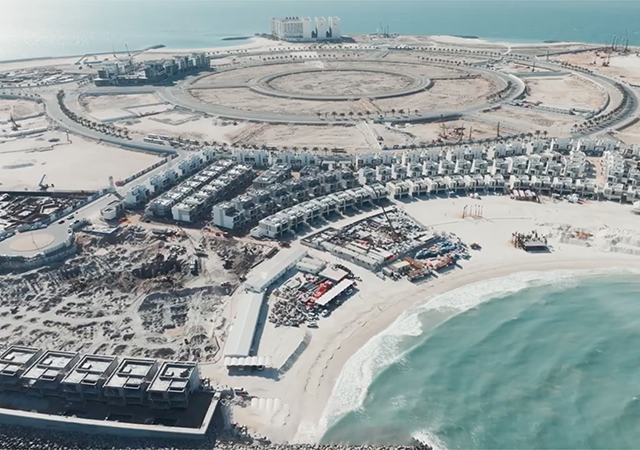
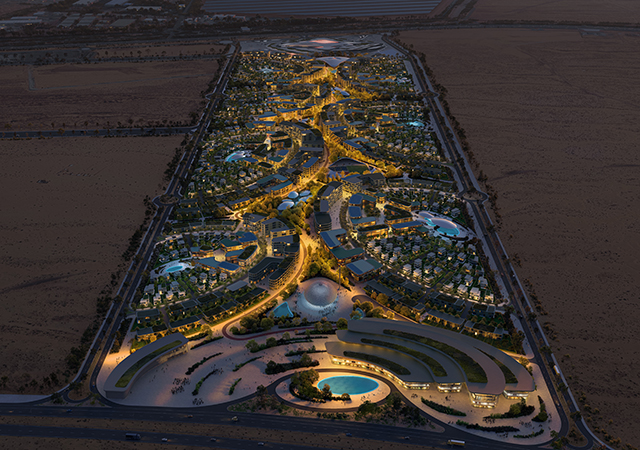
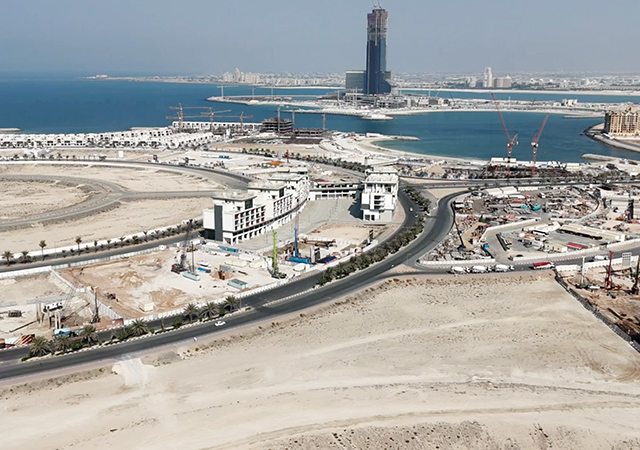

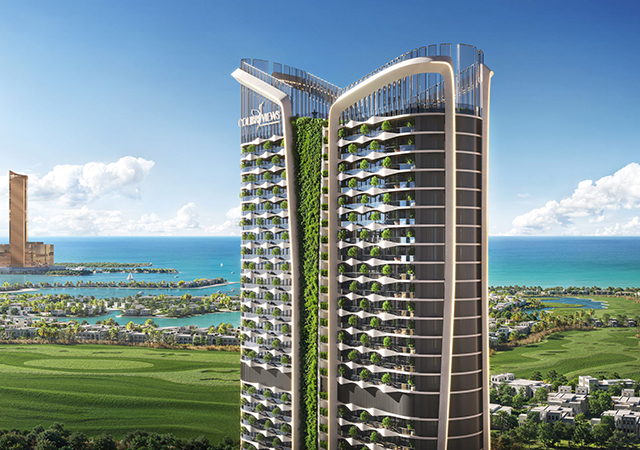
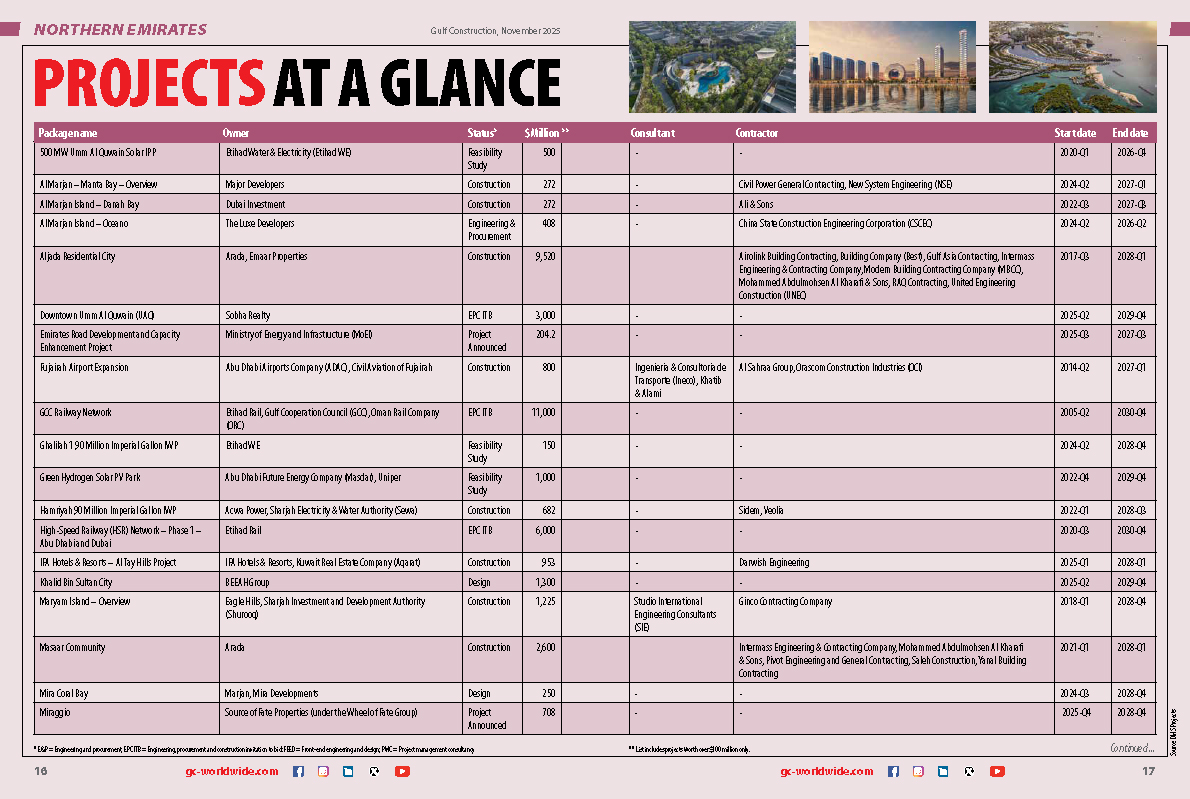
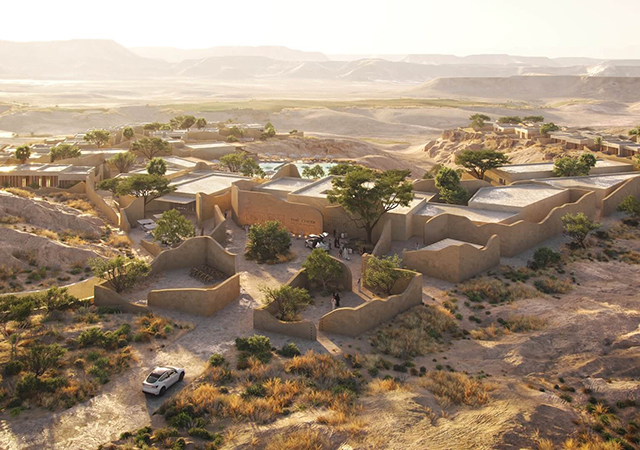



(5).jpg)

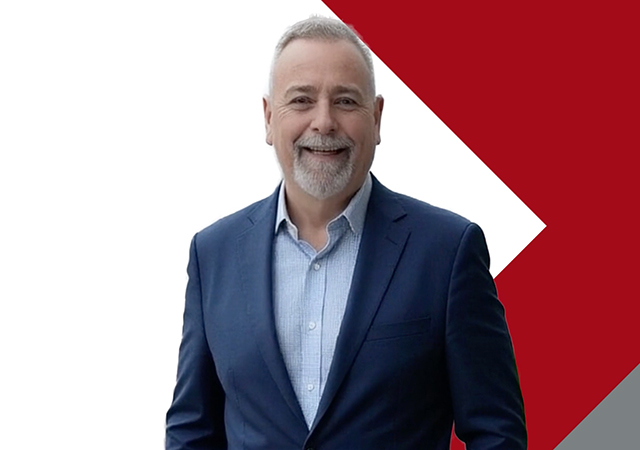


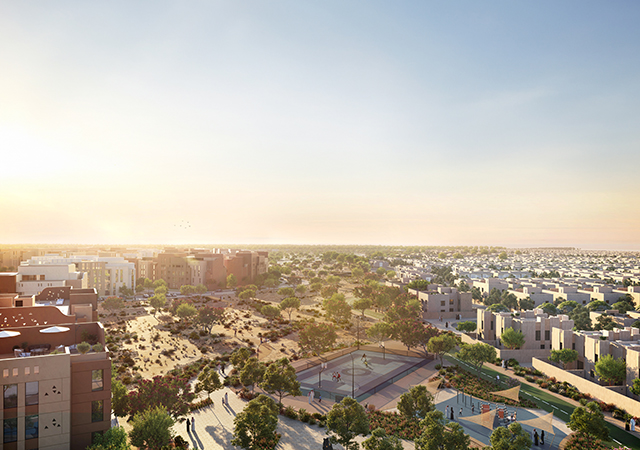
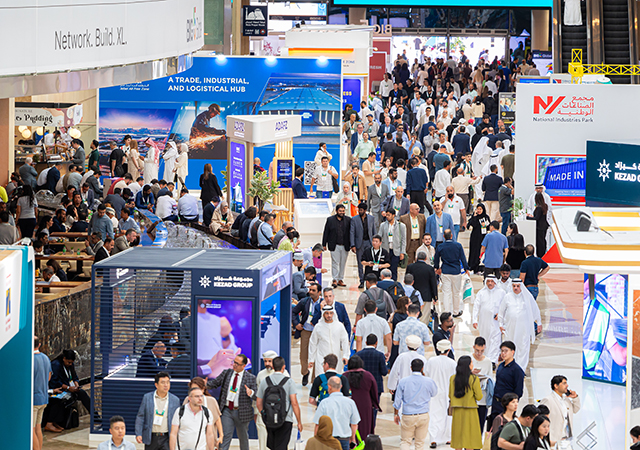
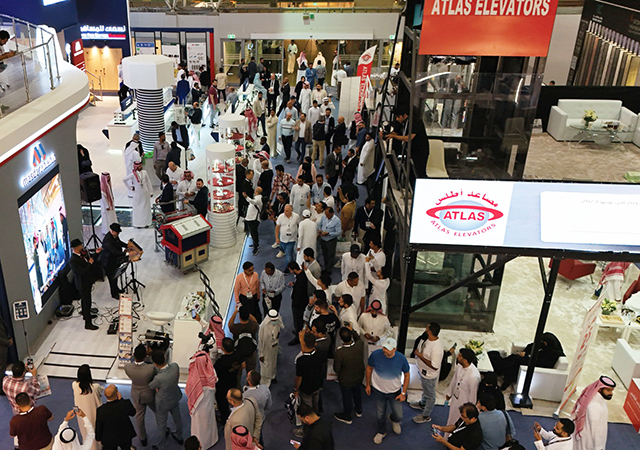

.jpg)



